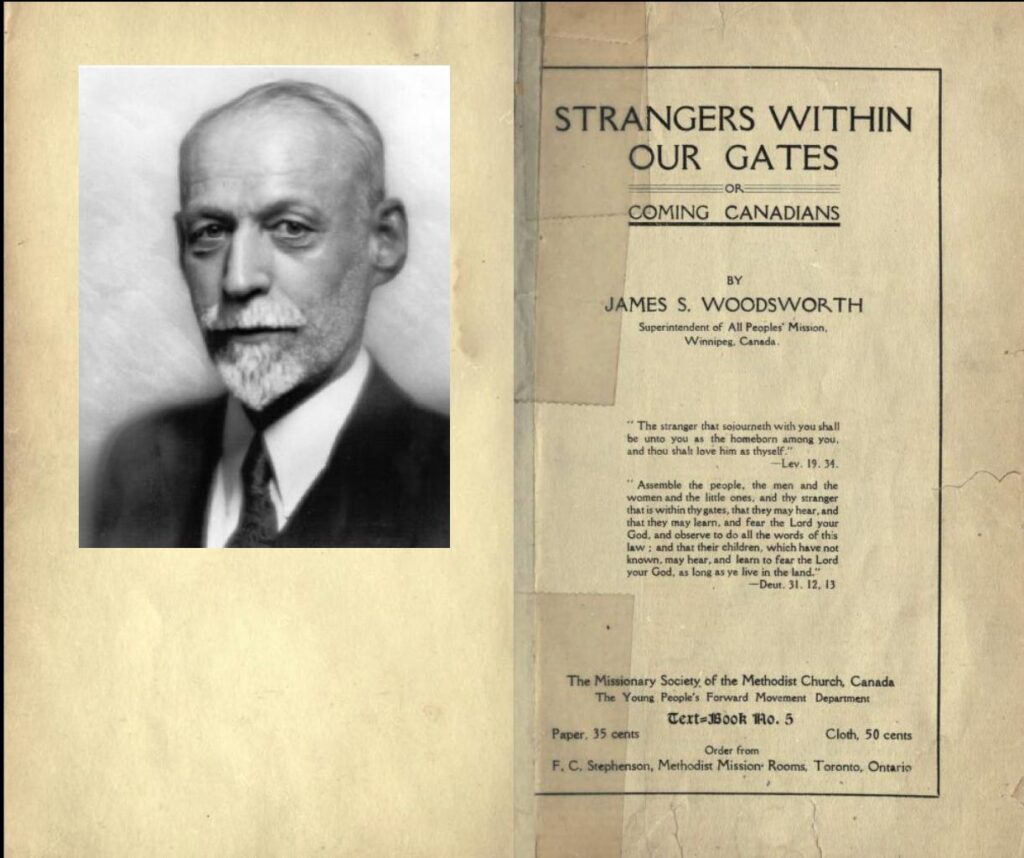Editor’s note: This article was originally published on Population Institute Canada’s website (populationinstitutecanada.ca) on August 27th, 2024. It is republished on Dominion Review with permission of the author.
Not long ago, I was contacted by an immigrant from a developing country that I’ll call “Pangea” who had seen one of my articles republished on a Canadian housing subreddit. This person, whom I’ll call “Pan,” was in his forties, was born in Pangea and had come to Canada as a pre-teen with his parents, who had immigrated legally.
Pan has a degree from a respected Canadian university and works in an upscale profession. He has concerns about Canada’s immigration system and the direction in which Canada is headed. Things are very different, he told me, from when he came to Canada. After some communication by email and phone, Pan wanted to meet with me to share some immigration stories. And so it was that I was invited to dinner by Pan and his wife, whom I’ll call “Gea,” who had legally immigrated from Pangea as an adult. Gea was also a trained professional in a different field.
As many other Canadians have also noticed, Pan and Gea pointed out that even when both members of a couple have a good job, life in Canada is getting more expensive and, in many ways, more challenging. Everything they (or, in Pan’s case, his parents) had done to immigrate to Canada was legal and above board. Pan and Gea were living legally in Canada and paying taxes. But both were dismayed at the many sketchy immigration stories they were aware of from their own family and the Pangean community in Canada. How is it, they wondered, that the Canadian government was allowing all of this to happen?
Below are some of the stories they shared with me and hoped other Canadians would hear as well.
Journalists as pseudo-refugees
Pan said that in the mid-2000s, while he was attending university, two journalists from Pangea came to his parents’ house in Ottawa and stayed for a few days. They had been sent by a Pangean TV station. Pan’s father, who had relevant connections in Canada, introduced them to some government officials for interviews that the TV station had instructed them to get. He also gave them a ride to Toronto, where they were able to get some employment-related interviews. Although they were economic migrants, they claimed asylum based on a civil war in Pangea that had already ended. While a bit of research or perhaps a consultation with the Canadian embassy in Pangea would have revealed that the civil war was over and the journalists were not in any danger in Pangea, both were successful in their asylum claim.
Service clubs as migration hubs
In Pangea and other developing countries, the Rotary Club and Lions Club are popular because they hold conventions in Western countries. As a migration strategy, a person seeking to move to a Western country as a faux asylum seeker will get a visitor’s visa to go to such a meeting and return home. With a passport indicating that they had travelled to and returned home from one or more Western countries, would-be pseudo-asylum seekers gain credibility and are more easily able to get travel visas for their entire families. The family then travels to the chosen country with their legally obtained visas, discards their passports, and seeks asylum.
Three years ago, the sister-in-law of a Pangean friend of Pan and Gea came to Canada using that method. First her husband came to attend a meeting, then he brought his wife and child on a subsequent visit, where the family claimed refugee status. The couple also had a child in Canada, who would serve as an anchor-baby.
Amazingly, this “refugee” couple was able to buy a house within just one year, an achievement that is increasingly elusive to native-born Canadians. They raised the money for a downpayment by selling their house in Pangea and getting a friendly business run by people of Pangean origin to put them on the payroll for six months. Then, while collecting welfare, they flooded their basement with international students who paid rent. (Exactly what some of those international students are studying and the nature of the institutions giving them diplomas is also worth investigating.) With false documentation and the help of some bankers and mortgage specialists, this couple could afford a house. Currently the husband is working but the wife is not.

Pan said he had a relative who plans to visit Australia (where some of this person’s close relatives live legally) on a visitor’s visa and then return to Pangea (i.e., establish credibility that he is not asylum-shopping). He then intends to apply for a visitor’s visa to Canada, where he will attend the Rotary Club meeting that will be held in Montreal in 2025. He will then claim asylum. After 18 months, he expects to gain permanent residency, at which point he’ll be eligible to bring the rest of the family here.
This person, Pan said, is not concerned about earning a living because he is planning to depend on the Canadian government to support him and the family once it arrives. The generous support from the government is the primary reason that this asylum shopper is choosing Canada.
A few weeks later, Pan gave me an update on the situation of this relative. He had just been offered a very promising business opportunity in Pangea. But he considered turning it down because he was so confident that he’d be accepted in Canada, despite the fact that he would not qualify as a permanent resident under Canada’s immigration points system.
Pan said that everyone who is a member of the Rotary Club in Pangea is there to get to a Western Country. He said that about half the people from developing countries who attend Rotary Club conventions in a developed country will not return to their country of origin.
How to get a couple of one-million-dollar homes in Toronto
An acquaintance from Gea’s university program in Pangea came to Canada 15 years ago for a college program. She currently works as an early childhood educator, which means she makes $30,000 to $40,000 per year. Her husband, Gea estimates, makes $60,000 to $70,000 annually. And yet this couple owns not one, but two, one-million-dollar homes in Toronto. Gea noted that when she (Gea) tried to get a line of credit, she was only offered $20,000, yet she has professional credentials and works in her field, which is significantly more lucrative than early childhood education.
The way to do this, Pan explained, is to first find a house to live in with the help of corrupt mortgage brokers, and then fill the house with people from “back home.” The shared language, culture, religion, and fear of contact with authorities in a shared mission (gaining permanent residency) leads to comradery. Usually these overcrowded homes go unnoticed by authorities. Given the huge number of foreign students in Canada (about one million) and the “diploma mills” that keep them coming, enterprising newcomers, faux refugees or otherwise, who are willing to crowd their home end up being able to afford a house in Canada’s burgeoning big cities. This puts resident Canadians at a disadvantage, since they are competing for housing with people who can pay more by being willing to put up with crowding and unsafe conditions. Interestingly, the government of Canada seems oblivious to what is going on. If it is aware, it has shown no inclination to investigate the hazardous situation that such crowding presents.
Things are a bit tougher in the United States, it seems (at least for those who aren’t pouring over its southern border). Gea described the case of a good friend from her university days in Pangea. This woman’s father had stayed in the US for fifteen years but was not able to bring his family, so he returned to Pangea.
Can asylum fraud really be this easy?
Pan mentioned another relative of his, who used to work for a non-religious, non-political FM radio station in Pangea and was in no danger of persecution. Yet now he has refugee status in Canada. This person has an accounting diploma and is working, Pan said, so “at least he’s not a moocher.”
Gea mentioned a friend of hers who had come to Canada via express entry as a nurse. She worked as a registered nurse while her husband attended a college program in Ontario. The husband invited his brother, who was a teacher in Pangea, to come to Canada for his graduation ceremony. The brother came to the graduation. Although he was not facing persecution or any other danger in Pangea, he claimed asylum. Amazingly, he was successful and within three years had brought over his wife and children.
Pan said he knew of no asylum seeker from the Pangean community who had failed to get refugee status – from a country that is not at war and where no group is being targeted for persecution in a systemic fashion.
Diploma mills, immigration consultants and temporary workers
Pan said that last year, a young woman from his family’s village in Pangea went to Toronto as a student. Pan arranged for her to stay with a friend in that city. He offered to review and improve her resumé. This woman’s resumé was approximately at a Canadian grade 8 level, Pan said, which should have raised questions about her qualifications as a student. Yet apparently her qualifications were sufficient for some institution. Pan asked how this woman, and other graduates churned out by diploma mills, were helping the Canadian economy. Any money she makes, he said, would be sent back home for the family’s general expenses and to pay back the debt she incurred by coming to Canada.
Gea said that she had a relative by marriage who was an immigration consultant. He sends people from Pangea to Canada and Australia. Twenty-five percent of first-year student fees go back to the consultant, she said. A college in BC offered this man a free trip to Canada if he could get them 16 students.
Pan knew a software developer from another developing country who opened a restaurant that serves Western breakfasts, that is, it does not specialize in any kind of ethnic cuisine. A Canadian chef was costing him $65,000 to $70,000 a year, so he intended to bring in two workers from his home country to prepare Canadian food. This man had colleagues who had already succeeded in doing something similar, apparently without raising eyebrows in the immigration department.
A few weeks after our meeting, Pan informed me of two other cases of immigrant fraud. He noted that every time he chats with a different immigrant, he finds out about new cases of fraud. One person informed him that a temporary worker had acquired a job in Toronto by lying on his resumé. This update to the resumé was actually initiated by an immigration consultant. The company found out about his lack of qualifications and put him on probation rather than fire him. Lucky for him, because he owes about half of his before-tax income from the first year to this “consultant.”
Another friend of Pan’s informed him how LMIA fraud works. An LMIA, or Labour Market Impact Assessment, is a document that a Canadian employer may be required to produce to show the need for a foreign worker to fill a particular job for which no Canadian or permanent resident is available. In reality, said Pan’s informant, a small business owner (typically a first-generation immigrant) posts a job and claims that no qualified people within the country applied. He offers to bring in someone from his home country (often the same community). Unbeknownst to the Canadian government, this person is charged a fee. In the Pangean community, the current rate for bringing someone to Canada is around $30,000. The migrant usually knows that fraud is being committed, although he cannot distinguish between payments required for processing and payments made to the immigration “consultant.” The business owner brings the highest bidder into the country and pays him for a couple of months before helping him find a real job. This is often a “rinse and repeat” operation. That so many workers specifically brought to Canada by employers allegedly unable to find qualified Canadians then leave those employers in short order has also failed to raise red flags. “Why is it so unbelievably easy?” Pan asked.
Mass immigration and multiculturalism: detrimental to residents and newcomers
Pan and Gea discussed how Canada’s immigration system is putting resident Canadians at a disadvantage. Unlike many newcomers from developing countries, they are unlikely to contemplate stuffing their basement with foreign students to generate money for mortgage payments. They also have to pay for their own mortgage, Pan said, while mortgage fraud is rampant in the immigrant community in Toronto.
Pan mentioned that a Pangean of his acquaintance knows a Turkish couple. The husband is a family doctor and the wife a human resources specialist. This family is secular, and the wife does not wear a hijab. In Turkey, Pan said, schoolgirls are increasingly being forced to wear the hijab. (Whether or not there is an actual law, school dress codes and social pressure could make it de facto mandatory.) This family had come to Canada to escape all this. Yet religious leaders came to this couple’s home in Ottawa and told them that the daughters should be wearing a hijab and so should the mother, and that they should attend Friday prayer.
When Pan graduated from high school, he said, schools were secular. About a decade later, when his younger sister graduated, there was an imam at the school who awarded prizes to Muslim students. There were no other religious leaders at the public school.
Pan, Gea, and I agreed that the de-secularization of Canadian public schools, along with poorly thought-out “multiculturalism” and mass immigration, were a recipe for the fragmentation of Canadian society.
The brain drain and instability
Pan and Gea said they know of 17 Pangeans in Ottawa who have Ph.D.s, all of them legitimate. They lamented the massive brain drain from Pangea. The amount of emigration from Pangea in general, they felt, was detrimental to the society and economy of that country.
And it’s not just the brain drain. The massive loss of young people from society is making the people who remain (willingly or otherwise) hopeless about the future. This hopelessness is feeding the notion that emigration is the only way out.
Mass emigration is destabilizing Pangea in other subtle ways. In some villages, the only people who knew metal work have left. In some villages, the only people who could knit or tailor clothes are no longer there. For many farmers, it’s now hard to find a person who can till the land or operate a tractor. The small communities are becoming unlivable because the fabric that made the society is getting torn due to mass emigration.
Who is actually in control?
In 2023, Canada’s population grew by 1.27 million. 97.6% of that growth came from international migration, and only 2.4% from natural increase. The massive population growth from bringing in about 2.5 million newcomers during 2022 and 2023 has turned an acute housing shortage into a crisis. It has made housing unaffordable for many and is making young people put off starting a family. According to Statistics Canada, having a baby has become a marker of wealth. Yet the government of Canada uses Canada’s low fertility rate as one of the justifications for its policy of mass immigration.
The government seems to have lost control of who is coming to Canada but only started to show concern following the backlash its destructive policies have generated. It is also not diligent in ensuring that people leave when their visas expire. In September 2023, the CIBC estimated that there were 750,000 non-permanent residents from 2017 to 2022 who had overstayed their visa and were not being counted in official statistics. At the same time, the number of temporary workers, under various programs, has risen dramatically in recent years.
Prime Minister Trudeau himself admitted that the number of temporary foreign workers (and foreign students) had gotten out of control. The hapless immigration minister, Marc Miller, has called it “a mess.” When asked about the immigration-induced housing crisis in a friendly interview, he said that “where we are ambitious in our public policies, [we] don’t necessarily fully appreciate and play out what impacts that can have.”
Which raises the question, whose ambition is the government fulfilling, and why? Although it has declared its intention to reduce the number of temporary workers and foreign students, the government remains very “ambitious” in its target of permanent residents, which is 500,000 annually.
The government’s primary response to the housing crisis has been to promise to “build, build, build.” But it is physically impossible for it to build its way out of the situation created by its immigration policies.
Pan and Gea noted that the immigration fraud stories they were aware of were all from the Pangean community – only one of many international communities in Canada. How many instances of immigration fraud would be found among the many other ethnic communities in Canada, they asked rhetorically.
Needless concerns that Canada is looking for scammers
Pan had invited a few acquaintances to also attend on the evening I joined him and Gea for dinner and conversation. They were to share their own stories or ones they knew about of immigration fraud. But they all bowed out. One of them called while I was there to give his regrets. (I could not understand Pan’s end of the conversation as it was in a language I don’t speak.) Pan told me that everyone was afraid that I might be a government agent covertly collecting information. Their concerns seem unnecessary. The government seems far more ambitious about bringing people into Canada than in carefully monitoring who gets in or keeping track of everyone who does. This is, after all, the same government that allowed over 100,000 “asylum seekers” to stream over the border from New York State at the decommissioned Roxham Road crossing near LaColle, Quebec, between 2017 and 2023.
So why the secrecy?
Some may question why Pan and Gea wanted neither their own identities nor that of their country of origin revealed. As Pan said, were people in the Pangean community to see what I wrote, many would know who was being talked about and who had spilled the beans on what they did. And perhaps even the government would take note, although it has been remarkably uninterested in investigating the veracity of asylum claims, the programs of study of many international students and the institutions offering them, or the actual need for so many non-permanent resident workers.
Pan and Gea didn’t want to get anyone into trouble but they felt compelled to let Canadians know that many newcomers to Canada are scamming the system. Pan said that it is the systemic issue that needs to be addressed and going after a few people who happen to be known to whistleblowers would fix nothing. Any system that does not have safeguards against moochers and cheaters will fall apart, he emphasized.
Growing Canada into poverty?
Canada’s current immigration policy is based on bogus economic arguments for the need of an ever-growing population that includes a lot of temporary workers to satisfy the cheap labour demands of certain industries and shows a lack of due diligence with regard to asylum seekers. While it once enjoyed one of the highest levels of equality in the world, Canada is rapidly becoming a country of haves and have-nots. This trend will continue as long as the government prioritizes an “ambitious” immigration policy over the well-being of Canadians.
Canada’s housing crisis, inflation, and high unemployment among recent immigrants and temporary workers are reducing its desirability as a destination. Pan said that for the children of his cousins back in Pangea who were considering emigration, Canada had already lost its shine. But much of the world’s population still lives in poor or developing countries where corruption is often rampant, and therefore migration pressure to Canada will continue even as it becomes less desirable, especially for qualified immigrants. Given Canada’s fixed and very high immigration target (500,000), and the yet-to-be-reined-in flow of an even greater number of temporary workers, this will lead to a reduction in the quality of newcomers coming to Canada.
I hope the stories that Pan and Gea shared with me will alert Canadians to the abuse of Canada’s immigration system. Despite the blatant fraud committed by some immigrants, temporary workers, and false asylum claimants, in my opinion it is the government that is the biggest scammer of them all for allowing such things to happen and for setting targets based on myths rather than reality. Without a root and branch reform of what Canada’s immigration system has devolved into, Canadians living today would not recognize the country that Canada is likely to become.
Madeline Weld, Ph.D.
President, Population Institute Canada
Tel: (613) 833-3668
Email: mail@populationinstitutecanada.ca
www.populationinstitutecanada.ca
All content on this website is copyrighted, and cannot be republished or reproduced without permission.
Share this article!




The truth does not fear investigation.
You can help support Dominion Review!
Dominion Review is entirely funded by readers. I am proud to publish hard-hitting columns and in-depth journalism with no paywall, no government grants, and no deference to political correctness and prevailing orthodoxies. If you appreciate this publication and want to help it grow and provide novel and dissenting perspectives to more Canadians, consider subscribing on Patreon for $5/month.
- Riley Donovan, editor